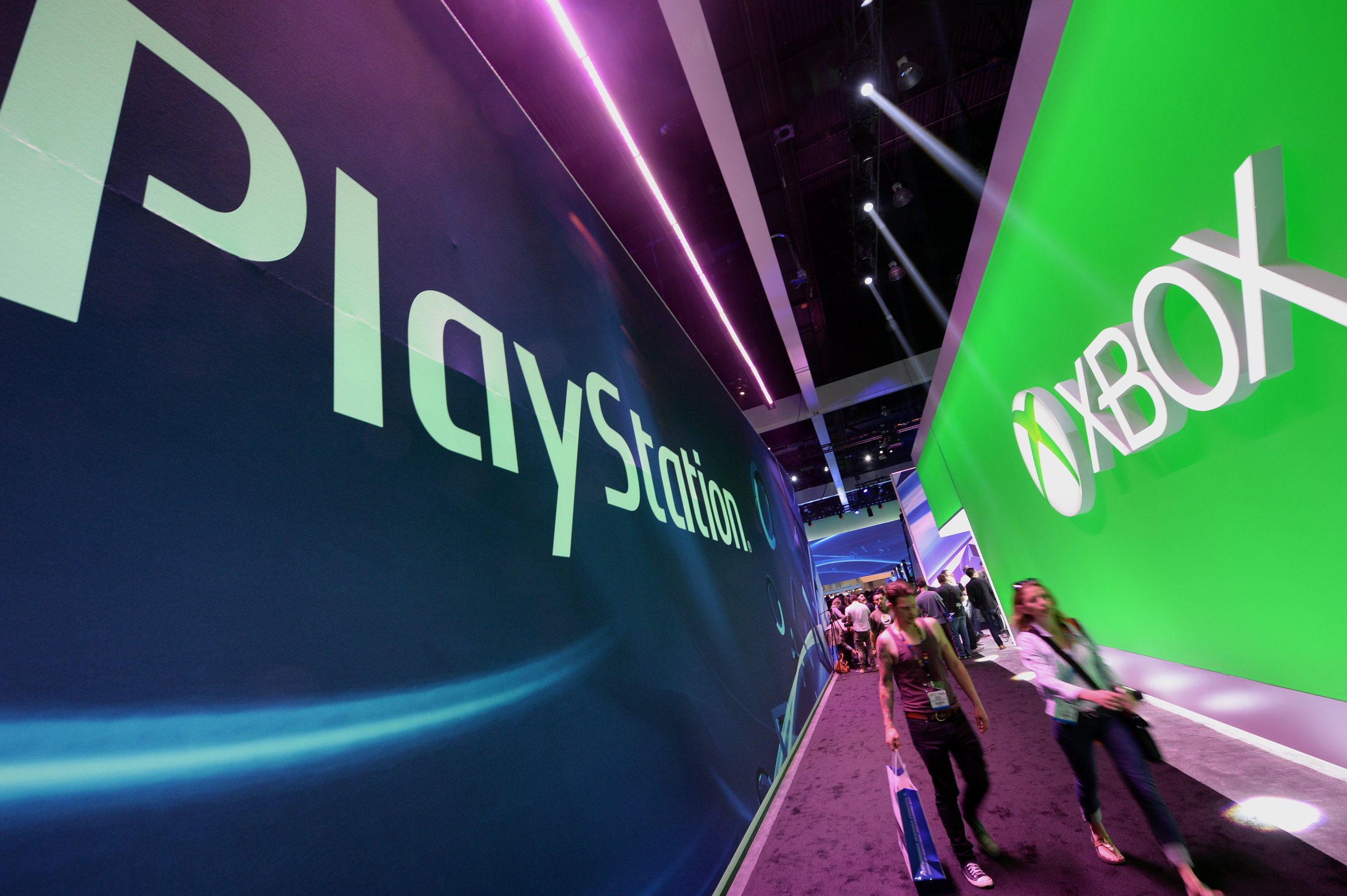
The Chinese video game market is in for a major shake-up. Two of Sony’s mega-popular consoles, PlayStation 4 and PlayStation Vita, will be sold in China starting next month, the company announced Thursday. Sony’s move comes three months after Microsoft debuted its Xbox One in China.
Why did it take so long for Chinese gamers to get the PlayStation 4 and Xbox One? For 14 years, China banned video game consoles over fears violent games would lead to moral decay. That ban was just lifted in January, opening the door for Sony and Microsoft.
China’s ban didn’t totally eliminate consoles there — a grey market of smuggled and home-grown consoles has long existed there. But analysts say the rule caused China’s gaming market to be dominated by PC and mobile games. That means Sony and Microsoft now have to convince Chinese gamers they should buy a console, too.
Sony and Microsoft could be in for a windfall if they can turn China’s gamers into console jockeys. Lewis Ward, research director of gaming at IDC, said his firm found that China’s current console penetration rate is in the “single digits.” But given China’s 1.3 billion-person population, that low rate actually translates into millions of potential customers already — and that’s before the companies’ marketing machines kick into action.
“In PC [gaming], you have Internet games like Starcraft, Warcraft and Defense of the Ancients. So how [do Sony and Microsoft] win back those groups?” said Roger Sheng, a Shanghai-based consumer electronics research director at Gartner.
The answer lies not in hardware, but in software. Game selection will be biggest reason a Chinese gamer decides to buy a PlayStation 4 (RMB2,899, or $468), an Xbox One (RMB3,699, or $598) or any other game console, analysts said. But while China is letting foreign consoles through the front door, whether or not they can bring along Call of Duty or Titanfall is another question. Each game sold in the country has to win the hard-to-earn approval of China’s Ministry of Culture, which prohibits everything from blood to touchy political topics.
“[Xbox One’s and PlayStation 4’s] prices are similar enough — both of them are expensive for a typical consumer in China,” said Lisa Hanson, managing partner at Niko Partners, an Asian games research firm. “The tricky regulatory landscape is always the biggest barrier to success for foreign companies in China.”
The key for Sony and Microsoft, analysts say, is for them to build partnerships with Chinese game makers, who enjoy pre-existing relationships with regulators and whose games have already passed the lengthy approval process. For now, Sony and Microsoft can entice Chinese developers to port their pre-approved games to the Xbox and PlayStation. If consoles take off with Chinese gamers, local developers are likely to start making dedicated games for them.
When it comes to building relationships and selling games in China, Sony has a leg up on Microsoft: As a Japanese company, it’s geographically and culturally closer to China than its American rival Microsoft. That means many Chinese gamers are already more familiar with Sony’s titles, a big advantage for the company. Sony hasn’t said which PlayStation games it’s bringing to China, but Microsoft is so far only selling 10 — a sign it might be having trouble connecting to the Chinese audience. Sony is also leading in terms of developer partners, with 26 to Microsoft’s 13.
Ultimately, the small size of Microsoft’s current catalog combined with the Xbox’s higher price may give Sony the edge in the Chinese console wars, analysts said.
“[Xbox’s catalog size] is bordering on negligence — I assume Sony is going to have a significantly larger catalog than that,” Ward said. “Make no mistake, people buy consoles because of the games.”
More Must-Reads from TIME
- Inside Elon Musk’s War on Washington
- Meet the 2025 Women of the Year
- Why Do More Young Adults Have Cancer?
- Colman Domingo Leads With Radical Love
- 11 New Books to Read in Februar
- How to Get Better at Doing Things Alone
- Cecily Strong on Goober the Clown
- Column: The Rise of America’s Broligarchy
Contact us at letters@time.com